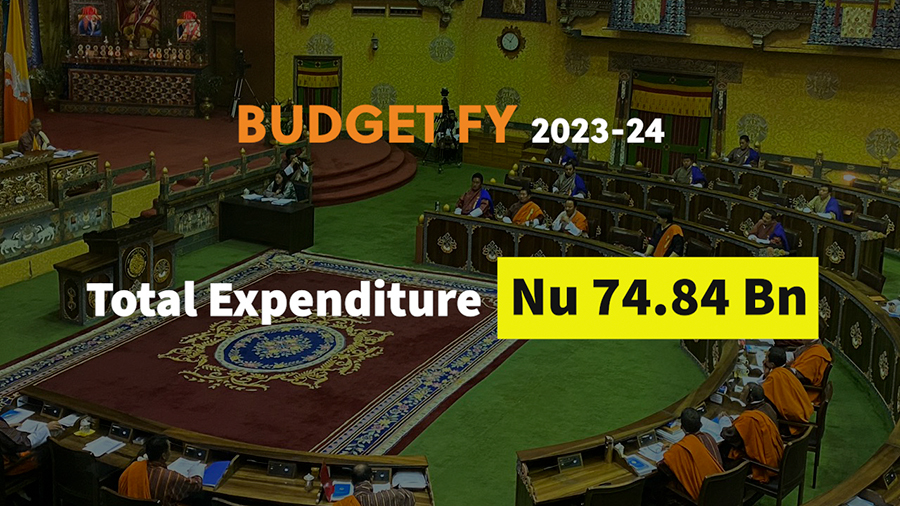
The total expenditure estimated for the next financial year is almost Nu 75bn. This was announced by the finance minister who presented the Budget Appropriation Bill for the Financial Year 2023-2024 in the National Assembly today. According to the finance minister, the budget is aimed at building stronger institutions through strategic reforms while ensuring a sustainable fiscal path and smooth transition into the 13th Five-Year Plan.
Introducing the bill to the House, the finance minister said that the country’s economic base is not strong and that the gap between import and export is widening every year. The minister also added that Bhutan’s economy is a low-productivity economy.
“We say that we have 60 per cent of the population engaged in agriculture but the contribution of agriculture to GDP is at the maximum 19 per cent. That is a clear indication of the productivity of our economy.”
As for the budget for the next financial year, of the total expenditure of Nu 74.8bn, over Nu 45bn will be used as recurrent expenses and the remaining will be spent on capital works.
On the other hand, the estimated resource for the Financial Year 2023-24 is at Nu 53.5bn. This leaves a fiscal deficit of over Nu 21bn.
“To meet the fiscal deficit, like always, we will look at getting concessional external loans and domestic borrowings.”
Of the total resource, revenue from tax revenue makes up the bulk of it at over Nu 31bn. Non-tax revenue stands at almost Nu 15bn, while about seven billion of the total resource is coming from grants.
As for budget allocation by ministries, the infrastructure and transport ministry has the highest allocation at almost Nu 4bn followed by the finance ministry at over Nu 3bn.
For the local governments, the 205 gewogs have been allocated almost Nu 4bn while the thromdes have been given over Nu 2bn as capital and recurrent expenses.
Improvement of roads like primary and secondary national highways, gewog centre roads have one of the highest allocations at almost Nu 6bn. Infrastructure development in the health sector has been allocated almost Nu 5bn.
In the next financial year, large capital investments are also expected in education, renewable natural resources, general public services, housing and community amenities, and mining and manufacturing industries.
Sherub Dorji & Deki Lhazom








